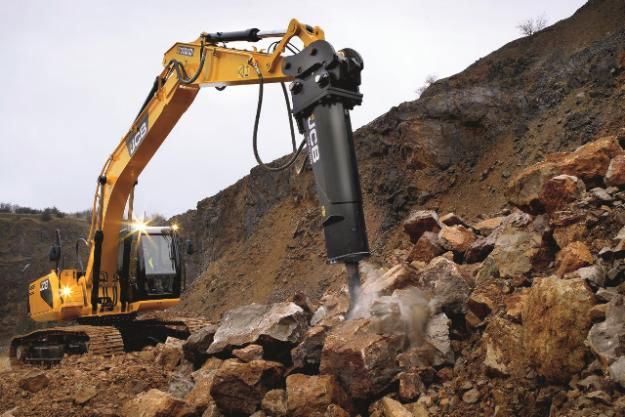Comprehensive Excavation Techniques: Mastering the Basics for Success
The cautious planning, accurate implementation, and meticulous focus to detail needed in excavation projects require a thorough strategy that incorporates numerous essential aspects. The real proficiency exists not just in recognizing these basics yet in effortlessly integrating them to navigate the complexities of excavation tasks with finesse.
Recognizing Excavation Task Preparation

The initial stage of any type of excavation job is the planning stage, where important decisions are made that can considerably affect the result of the task. Comprehending the task timeline, spending plan, and extent restraints is crucial for producing a thorough excavation plan that ensures the job's success.
One secret element of excavation task planning is the growth of a comprehensive timeline that details the series of due dates, tasks, and turning points. This timeline acts as a roadmap for the project group, permitting them to track development and make required adjustments to ensure the project remains on schedule. Additionally, a well-defined budget plan that accounts for all expenses, consisting of devices rental, labor costs, and products, is necessary for preventing cost overruns and delays. By very carefully taking into consideration all these elements throughout the planning phase, excavation tasks can be implemented successfully and efficiently, bring about effective results.
Soil Evaluation and Site Analysis
Carrying out complete soil analysis and website assessment is a critical action in the prep work stage of any kind of excavation job. Soil evaluation includes determining the structure, structure, and residential or commercial properties of the dirt at the excavation website. This information is vital for understanding the dirt's bearing ability, dampness content, and potential for erosion, which are essential consider determining the excavation methods and equipment required for the task.
Site evaluation exceeds dirt evaluation and encompasses a wider assessment of the general site conditions. This examination consists of determining any type of possible hazards, such as below ground energies, ecological issues, or unpredictable terrain, that can influence the excavation process. By extensively assessing the website, project managers can establish efficient excavation approaches that focus on security, performance, and ecological defense.
Making use of innovative innovations like ground-penetrating radar, soil tasting, and drone surveys can boost the precision and performance of soil analysis and website examination. Investing time and sources in these preliminary steps can ultimately save time and protect against costly delays or problems during the excavation procedure.
Equipment Choice and Use
Efficient excavation jobs rely heavily on critical devices selection and utilization to make sure ideal efficiency and productivity. Choosing the ideal tools for the job is vital in making best use of performance and minimizing downtime. Aspects such as the kind of dirt, depth of excavation, and task extent play a substantial function in figuring out the most appropriate equipment for the task available.

Along with picking the suitable tools, appropriate utilization is crucial to project success. Operators needs to be educated to take care of the equipment securely and effectively - excavating check that ohio. Regular upkeep checks and prompt repairs aid protect against failures and ensure constant performance throughout the project
Safety Procedures and Rules Conformity
In the world of excavation projects, focusing on precaution and conformity with laws is extremely important to ensuring a legally sound and secure operational setting. Security procedures include a series of practices, including carrying out thorough site evaluations, carrying out appropriate signage and barriers, and providing ample safety training for all employees involved in the excavation procedure. Adherence to guidelines, such as OSHA needs in the United States, guarantees that the excavation job satisfies the needed requirements to secure workers, bystanders, and the surrounding environment.

Tracking Development and Adjusting Approaches
Just how can forecast managers effectively track the improvement of excavation tasks and adapt their methods accordingly to enhance results? Tracking progress is important for making certain that excavation jobs stay on track and meet target dates.

Final Thought
Finally, mastering the principles of extensive excavation methods is important for the success of any task. By comprehending project preparation, examining soil and site conditions, selecting appropriate tools, following security policies, and keeping track of progression, project supervisors can ensure a reliable and smooth excavation process. Implementing Check Out Your URL these methods will certainly bring about successful outcomes and lessen potential dangers or problems throughout the excavation job.
The preliminary phase of any kind of excavation project is the planning phase, where crucial decisions are made that can considerably affect the end result of the job. Comprehending the job budget, range, and timeline restraints is essential for producing a thorough excavation strategy that makes certain the project's success.
Exactly how can forecast managers efficiently track the innovation of excavation jobs and adjust their strategies as necessary to enhance outcomes? By very closely keeping an eye on progress and being eager to adjust approaches, job supervisors can enhance the overall success of excavation projects.
By understanding project planning, examining soil and website problems, choosing appropriate devices, conforming with safety and security regulations, and checking progress, task supervisors can guarantee a effective and smooth excavation process.